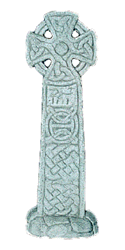
In 1890, the year before he famously jointly founded Dogura mission station with Copland King, pioneer Anglican missionary Albert Maclaren arrived in Port Moresby where he attended a meeting called by Sir William McGregor, Administrator of the Territory. There the "Comity Agreement" was drawn up between the Anglicans, the London Missionary Society and the Methodists which marked out separate geographical spheres of influence for them - Anglicans in what became Milne Bay and Oro Provinces, Methodists in the islands, and the future United Church taking Port Moresby, its hinterland and the southern coast.
One result of this was that for 24 years Anglicans had no church of their own in Port Moresby: all non-Catholic denominations shared the little wooden Ela Church dedicated in the same year of the Agreement. In 1977, however, when PNG became a separate province of the Anglican Communion, it recognised the increasing numbers of Anglicans coming to work in the capital city by creating one of the 5 new dioceses as the Diocese of Port Moresby.
The Diocese, though, is not just Port Moresby: it stretches from beyond Cape Rodney near the Milne Bay border all the way to Western Province adjacent to Indonesia. Geographically it is one of the largest dioceses, but in terms of number of Anglicans it is the smallest and still has a chaplaincy feel to its work in some of the smaller towns, where there may only be a handful of Anglican families to care for.
In Port Moresby itself, however, there are 7 urban parishes, the oldest of them centred on St John's Cathedral on the hill in the old town centre. Dedicated in 1914 (an early Rector was Henry Matthews, one of the PNG Martyrs of World War II), the present building dates from 1966. The second oldest parish is St Francis around the corner on the coast at Koki: this opened in 1953 and became a Franciscan-run parish when a household of brothers was established there in 1959. It was followed in 1956 by St Martin's in the suburb of Boroko: a new much bigger building was dedicated in 2000 and its large and eclectic congregation ranges from 6 Mile Settlement orphans to senior government officials. Other city parishes are Holy Family Hohola, St Aidan's Morata and St Mary's Gerehu. A little further out is the Parish of Sogeri Lowlands, with St Paul's and Christ the King Churches in the 9 Mile and Oro settlements respectively, and two other daughter churches serving Doa rubber plantation 1½ hours' drive northwards up the coast, and Sogeri up in the cooler hills overlooking the city. There are also Anglican chaplaincies for the University and the PNG Defence Force.
Other Anglican centres further afield exist to serve specific Anglican communities - rubber plantation workers recruited from Milne Bay who work at Cape Rodney; mine employees at Tabubil in the mountains near the Indonesian border; or government workers serving at provincial headquarters such as Kerema in Gulf Province. The scattered nature of these communities means that visits from a priest or the bishop require expensive airfares or long drives on partially unmade roads. A Mission District called Pivo needs an 8-hour dinghy journey from Kerema.
Another result of that 1890 Agreement is that almost all of the clergy serving in Port Moresby Diocese are not local but come from those originally designated Anglican areas of PNG. Currently Port Moresby has clergy from all 4 of the other dioceses working in the city. In addition to them, 4 SSF Brothers and 16 MBH Brothers also work in the Diocese. In 2011 the Diocese has 3 ordinands studying at Newton Theological College.
The Diocese is administered from Begabari in North Waigani, a large compound centred on a green space containing the diocesan chapel - the Chapel of the Good Shepherd - and around which are ranged staff housing, the Anglican Education Division's central office, and Anglicare, with which the Diocesan Office which shares administrative facilities. Working alongside Bishop Peter are Diocesan Secretary Amos Misirait, and Accounts Clerk Rachel Abaijah. The urban parishes contribute an assessment to the Diocesan Office, but the bulk of its income comes from property rentals, which means that the Diocese is financially self-supporting.
Anglicare PNG (not related to the Australian one) was begun in 2000 by volunteers as the Diocese of Port Moresby's response to the rising problem of HIV/AIDS, and has since grown to become the Anglican Church of PNG's social arm and a widely respected national NGO with a presence not only in Moresby but in Lae, Popondetta, Mt Hagen, Wabag and Chimbu. It provides a range of services to the wider community - HIV/AIDS and sexually transmitted infections testing and treatment, awareness and education programmes, and adult literacy classes. All these are offered at Begabari, and some services are also taken out into the community.
Unlike the other dioceses, in Port Moresby it is relatively easy for city clergy and people to come together for meetings, retreats and fellowship, and to contact each other by phone. In particular, each year Pentecost is celebrated jointly by all parishes in a truly festive spirit around the chapel at Begabari: in 2010 and 2011 this was preceded by a diocesan sports competition in which hundreds of Anglican teenagers from their respective city parishes played volley ball and touch rugby, trophies being presented by the Bishop after the Eucharist.
Back to the official home page of The Diocese of Port Moresby
The original website was set up with the help of the Webmaster of -- http://www.michie.net -- in March and April of the year 2000